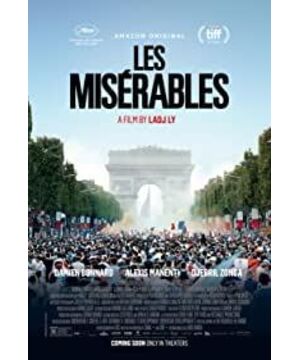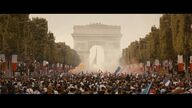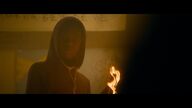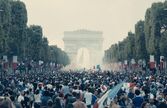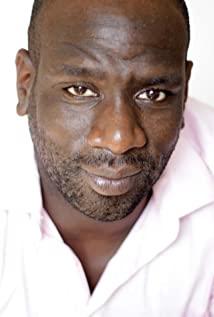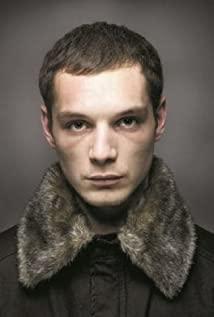Guns, drones, bricks: a reversal of power
The entire film is full of power flows and reversals. With the perspective of the male protagonist and the police officers' daily patrols, we see that the police power represented by Chris is rampant in the community, but soon, the director inserted multiple forces: the circus gypsies, the agent African The “mayor” gang that governs the ethnic community and the market, the Salah gang that gains power through religion and prestige, and the “iron rooster” gang that has the best relationship with the police, the power of multiple street politics is comparable and persistent in the community The game tries to achieve mutual benefit on the premise that the well water does not violate the river water.
Immediately afterwards, the classic plot appears, and the events of animals (non-humans) trigger the beginning of dramatic contradictions and conflicts. In this film is the theft of Johnny the circus lion cub. Retrieving the lion cub after the sword-fighting has become the core task of the trio of police officers to stabilize the dispute, and Issa, who holds the lion cub so far, has potentially become the center of power (or power struggle). After finding Issa, the most important dramatic turning point of the film opens. The children did not easily compromise with the police but tried to recapture and protect Issa. In this confrontation, the police trio held a more lethal weapon. Weapons can not be used easily, and Vada is in trouble because of the accidental injury of chili water, so in a classic street fight scene, the children even prevailed in a confrontation with a trio of cans, bricks and police officers, an abstract system There was a brief withdrawal from street political power, where violent power relations stalemate.
However, this stalemate and confrontation came to an abrupt end with a dramatic loss of control and shooting. The sound of gunfire shattered the raucous picture and powerfully declared that absolute power (capacity for violence), which had previously been in a potential position, belonged to the police officer, but this power relationship did not last long, and the drone’s buzzing turned it upside down again. The jobs of the three police officers are instantly placed in the hands of the drone's owner, Baz, and the drone's God's perspective makes this reversal of power relations more dramatic (Baz's state of tension and fear). The irony and drama of this power reversal is accentuated by contrast to Chris's hysteria).
After that, the images captured by Little Bass and his drone became the object of competition among several forces in the community, and the center of power fell on this child who was running away along the street. However, after he sought Salah's help and asylum, the power was undoubtedly handed back to the adults (one of the street political forces), and after the actor "back head" negotiated with Salah to get the memory card, he and Chris's conflict undoubtedly reflects the checks and balances he has achieved with the power in his hands.
So far, the first day is over. After a number of inversions in the flow of power, power is restored to its original state—the police power (and the checks and balances of power within the trio) and the political power of the street. At this point, the film has presented the state of the minority community in Paris to the audience and led the plot to an end amid the ups and downs of tensions and conflicts.
However! The wonderful thing about this film is that "Les Miserables" is far from over after sunset. On one side, little Issa came home and sat on the broken sofa in silence, while on the other side was a dispute between two police officers who were struggling with morality. It seems that both the words and the pictures seem to leave the power of moral judgment and decision to the adult side. However, on the second day, the children suddenly attacked. From planning to execution, the three police officers were forced into a desperate situation. They showed no mercy to the "Mayor" and "Iron Rooster". Boom the car, showing the momentum of stepping on adults from the camera everywhere. The whole plot unfolded suddenly and smoothly, leaving the audience stunned by how these children were suddenly so fierce? As for the scene at the end of the film, it is more classic. Little Issa holds a molotov cocktail and looks down at the three police officers who are in a desperate situation. It doesn’t matter whether the bottle is thrown or not. Ironically, "Your life depends on my kindness" is the best portrayal of the previously rampant police power.
At this point, the power has been completely reversed in an instant, and street politics and police power have been hit head-on by the violence of the children and trampled under their feet. The old power network and rules in the community were trampled to pieces and embarrassed in this incident. Unexpected, but reasonable: Looking back on the first day of the plot, although the street boss and the police officers were fighting with each other again and again, every time a bunch of burly men squeezed into the picture, blushed and fought with thick necks, the result was There was no direct violent conflict, not once (the conflict between the gypsies and the "mayor" was also quickly compromised after the police intervened), like an arrow on a bow and a full string, There was a lot of tension, but in the end it didn't come out. The only violent conflict occurred when children attacked police officers. Whether it was hand-to-hand combat on the basketball court or a long-range war using cans and bricks, violence happened and progressed naturally, just like shooting a bow and arrow. nature. Thinking about it, this may also be a hint buried by the director.
Radical Action: "Child Politics"
This reversal of children's power over adults has been featured in many texts in recent years. Yu Yiwen pointed out in the article "Weathering Sons: Towards "Children's Politics", when the hero Fan Gao in "The Son of Heaven" ignored the losses caused by catastrophic weather to human society in order to retrieve the girl Hina, his Attitudes and actions declare a more radical and irrational "children's politics", which does not aim at rational trade-offs between pros and cons, but jumps out of the options given by the existing system and uses subconsciousness to act directly.
In Haiyu Shirai's comic "The Promised Neverland", the author tells the story of a "food child" who escaped from the world of ghosts. The protagonist Emma was scolded by many people as "The Virgin" because she always insisted on To dream and plan an action out of a given choice: "unrealistic" full flight instead of survival of the fittest, transforming ghost society to achieve co-existence of edible children and ghosts rather than exterminating ghosts. What's so valuable about the comics is that they show Emma, from start to finish, who is in many adults (humans and ghosts as adults, Norman as "adult-like leaders", and those who pretend to be rational adults. Readers) how the seemingly unrealistic wishes can be realized step by step, the reflection on the jungle law of survival of the fittest and the upside-down overthrow of the whole system can be called an anti-neoliberal left-wing guide. Although there are a priori settings like the agreement between ghosts and gods and many elements of luck, if we don’t try, how do we know that we must have no good luck in reality?
"Children's Politics" is radical and impractical, but the fluidity and instant reversal of power make this contrarian declaration of war not impossible, whether through technology (Baz's drone) or violence (Isa and his Bros). And what the children's claim to power proclaims is the possibility beyond the impossible, the non-system outside the system, so it is radical and destructive, just as Nietzsche said, the newborn baby with the most vitality and will to power, shatters everything Given options and shackles, we create our own actions according to what we want.
In the film, whether it is Issa or Baz, no matter how many times they become the center of power on the first day, they ultimately rely on the established power network of adults to speak for their voices and decide their own destiny, even if they have moral authority. Salah also reached a compromise with the police and handed over the images without questioning the children of Issa (the injured) and Baz (the recorder). The lines of the cannon barrel and incendiary bottle raised by little Issa are: No matter what your forces are, if you beat me, I will fight back.
In the end, this movie is so fitting for Halloween, it's a violent declaration of "trick or treat" children's rights (?)
View more about Les Misérables reviews


